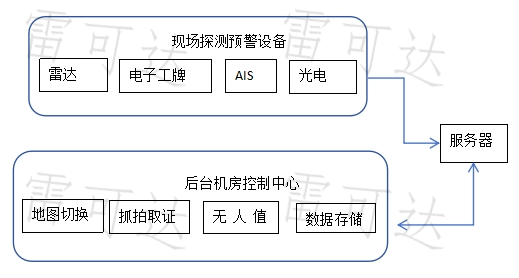With the continuous increase in fishing intensity and the expansion of marine pollution, China’s marine fishery resources are facing increasingly severe pressure of decline. Against this backdrop, mariculture has rapidly developed in recent years as an important supplement to marine fishing. However, environmental pollution, frequent diseases, and quality safety issues caused by farming have gradually become key bottlenecks restricting the sustainable development of the industry. The construction of marine ranching has emerged in response—it not only aims to enhance the yield and stability of fishery resources but also focuses on promoting the synergistic development of marine ecological conservation and modern fisheries.
When people hear the term “ranch,” many think of vast grasslands and herds of cattle and sheep. Today, however, “marine ranching” is gradually entering the public consciousness as an innovative fishery model—it exists not on land but in the ocean. So, what is marine ranching? Simply put, it refers to the planned cultivation of marine economic organisms such as fish, shrimp, shellfish, and algae in specific sea areas by scientifically arranging aquaculture facilities and implementing systematic management, simulating land-based grazing methods to achieve controllable and eco-friendly mariculture.
▍ Smart Marine Ranching: A Key Path to Digital Transformation
The development of smart marine ranching is becoming an important direction for promoting industrial upgrading. This system enables comprehensive, high-precision, real-time monitoring of the marine and atmospheric environment, vessel dynamics, reef conditions, and biological status within the farming area, truly achieving modern ecological aquaculture management that is “visible, measurable, and controllable.” It provides solid support for the long-term economic and ecological benefits of marine ranching.
▍ Theft Prevention: The Core Security Challenge in Marine Ranching
In coastal areas, large-scale mariculture projects often involve enormous investments, ranging from millions to even billions of yuan. To improve economic returns, many farmers choose to cultivate high-value seafood such as sea cucumbers, abalone, and groupers. However, constrained by traditional security measures, theft remains a persistent issue, frequently occurring during nighttime or under adverse weather conditions, causing significant economic losses for farmers.
Therefore, the aquaculture industry urgently needs an intelligent, efficient, and reliable security system capable of providing early warnings, deterring intruders, enabling all-weather monitoring, and supporting remote management. Such a system would effectively help farmers reduce labor costs and avoid property losses.
An ideal aquaculture anti-theft system should include the following features:
- Support day and night monitoring with high-definition recording for post-event evidence collection.
- Automatic alarms and real-time alerts, with remote viewing via mobile phones or computers.
- Upon detecting intrusions, automatically activate strong lights, voice warnings, and other devices to effectively deter intruders.
- Support integration with duty rooms for rapid response and handling.
▍ Lei Dun Fishery Protection Sea Guardian: Recommended Intelligent Security Solution
Wuhan Lakeda has developed the “Lei Dun Fishery Protection Sea Guardian” intelligent security system, specifically designed for marine aquaculture, based on radar and video integration technology. This system combines the wide coverage and strong anti-interference capabilities of radar with video surveillance technology to achieve real-time monitoring, proactive alerts, and full-process evidence collection for illegal intrusions. The system structure primarily consists of front-end detection devices and a back-end control center.
【System Workflow】
- The radar actively detects and tracks illegal intrusion targets, providing real-time feedback on distance, speed, and angle.
- Upon target identification, it automatically controls the PTZ camera for focused recording and activates lighting and audible/visual alarm devices.
- Radar data is uploaded in real time to the terminal system.
- The PTZ camera video stream is simultaneously transmitted back to the control center.
- The system integrates multi-screen display, event alarms, and data storage for unified management.
【Core System Features】
- Supports customizable protection zones with precise monitoring to effectively avoid false alarms.
- Operates in all weather conditions, unaffected by darkness, heavy fog, rainstorms, or other environmental interferences.
- Detects and proactively reports illegal intrusions in real time.
- Intelligently filters interference signals such as waves and floating debris.
- Offers excellent compatibility and scalability, supporting various models of PTZ cameras and alarm devices.
- Enables remote real-time monitoring via PC and mobile devices.
【On-Site Application Case】
A fishing port project in Dalian has successfully deployed this system, with equipment including radar, intelligent PTZ cameras, and audible/visual alarm devices. The back-end is equipped with centralized control and storage terminals, achieving high-definition day and night monitoring and intelligent alarms, significantly enhancing security efficiency and economic benefits.
▍ Conclusion
Leveraging years of industry experience, Wuhan Lakeda has a deep understanding of the challenges in theft prevention and management for marine aquaculture. Through continuous R&D and technological upgrades, the “Lei Dun Fishery Protection Sea Guardian” has been widely applied in high-value scenarios such as marine ranching and dynamic sea area monitoring. While meeting basic anti-theft needs, the system also supports customized functional expansions, helping modern marine ranching achieve intelligent and secure operations.
In the future, as marine ranching scales expand and management demands increase, intelligent security systems will play an increasingly important role. Wuhan Lakeda remains committed to technological innovation and service optimization, contributing to the sustainable development of marine fisheries.
Further Reading:
- Current Status and Prospects of Marine Ranching Construction in China - Chinese Academy of Fishery Sciences
- Integrated Development of Smart Fisheries and Marine Ranching - Ministry of Agriculture and Rural Affairs
- Modern Marine Ranching Technology System - Institute of Oceanology, Chinese Academy of Sciences